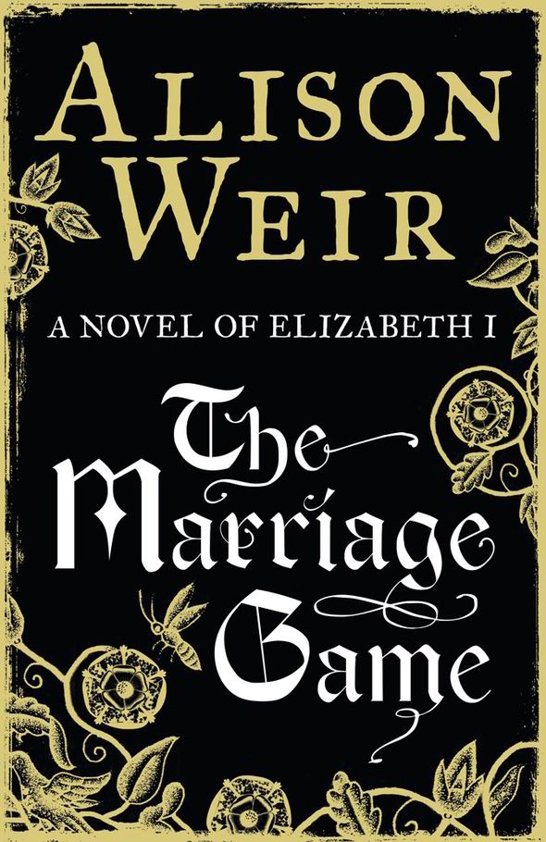
The Marriage Game
Elizabeth I Series, Book 2
کتاب های مرتبط
- اطلاعات
- نقد و بررسی
- دیدگاه کاربران
نقد و بررسی

November 10, 2014
Weir deftly follows The Lady Elizabeth, her 2008 novel about the young Elizabeth I of England (1533–1603). Here Weir trains her spotlight on Elizabeth’s equivocations over marriage from her accession to the throne in 1558 until the death of her most persistent suitor, Robert Dudley, Earl of Leicester, 30 years later. Weir posits that Elizabeth, deeply scarred by early experience, never intended to marry and had numerous personal and political reasons to avoid it. Yet her council pressured her repeatedly to provide an heir, while innumerable Catholic and Protestant courtiers and royalty sought her hand, hoping to cement an alliance. Elizabeth exasperated everyone with promises, flirting, impossible demands, and prevarication. Lively bedroom scenes and discordant council meetings reveal Elizabeth’s complexities, depicting her as a wily coquette determined to rule England alone. Mindful always of England’s interests and the vulnerability of her throne, Elizabeth made several anguished decisions regarding both “the marriage game” and her cousin Mary, Queen of Scots. A nuanced portrait of Dudley, whose love for Elizabeth remained steadfast despite her vacillation and his other marriages, balances Weir’s sympathy for her subject. Weir’s credible characters and blend of the personal and political will sweep up readers of this engrossing behind-the-scenes psychological portrait of Elizabeth.

December 1, 2014
A superficial sweep of the first 30 years of Elizabeth I's reign, with a focus on her relentless manipulation of marriage as a personal and political tool.Historical novelist and biographer Weir (Elizabeth of York: A Tudor Queen and Her World, 2013, etc.) builds her novel around the relationship between Elizabeth and Robert Dudley and the ageless speculation about whether they were lovers. Weir is careful and thorough with her research, so the details she offers about Elizabeth's constant play on Dudley's love and desire for power are probably accurate, but the characters fail to feel well-rounded or complex, certainly a tragedy when one is discussing two such rich historical figures as these. The larger backdrop of the queen's reign is overshadowed by her involvement in the "marriage game" of the title as she strings along not only Dudley, but also most of the eligible princes of Europe. Traumatized by her mother Anne Boleyn's fate and painfully aware of the irony that for a queen, taking a husband could only lessen her power, Elizabeth vows to be "a queen first, a woman second." Weir makes frequent mention of the queen's popularity with her people, but the novel fails to illustrate this convincingly; in fact, the whole novel suffers from a lack of "showing" in place of "telling." There is little believable romance between Elizabeth and Dudley, and while events like the St. Bartholomew's Day massacre, the execution of Mary, Queen of Scots, and the defeat of the Spanish Armada do happen, they are dealt with quickly and sketchily. Maybe Weir seeks to subvert our expectations of Elizabeth's strength by emphasizing her humanity, but Elizabeth emerges as capricious, vain and not particularly admirable. It's hard to be sympathetic for 400 pages of temper tantrums.
COPYRIGHT(2014) Kirkus Reviews, ALL RIGHTS RESERVED.

December 15, 2014
Weir continues the saga of Elizabeth I of England she began in The Lady Elizabeth (2008). As a nubile Elizabeth inherits the throne of England, her council strongly advises her to marry for a variety of political reasons, including the consolidation of power and the necessity of producing an heir. However, the wily Elizabeth, scarred by her own youthful traumas, including her mother's brutal beheading and her dubiously intimate relationship with Thomas Seymour, and passionately in love with the unsuitable Robert Dudley, fashions her own agenda. Playing the marriage game for all that it is worth, personally and diplomatically, she manages to avoid commitment, maintaining her independencealbeit at great private cost. Holding her suitors at bay while keeping their hopes alive, she becomes a master emotional and political strategist, taming her own heart in order to retain her position and her power as the Virgin Queen. HIGH-DEMAND BACKSTORY: Weir's impeccable reputation as both a historian and a master storyteller guarantees a huge audience for another intriguing Tudor-themed tale.(Reprinted with permission of Booklist, copyright 2014, American Library Association.)

September 1, 2014
Queen Elizabeth is playing "the Marriage Game," happy to encourage suitors and just as happy not to commit. Yet her flirtation with Lord Robert Dudley has courtiers suspecting that she is not the Virgin Queen after all. From the New York Times best-selling author of both historical fiction (A Dangerous Inheritance) and nonfiction (Elizabeth of York).
Copyright 2014 Library Journal, LLC Used with permission.

October 15, 2014
Following The Lady Elizabeth, which traces the Tudor princess's route to the English throne, Weir focuses on the monarch's love affair with Robert Dudley and her lifelong ploys to avoid marriage. Depicting the political and personal considerations that went into Elizabeth's attempts to be loved but remain outside any man's husbandly influence, the novel attempts to touch on the reasons why she shrewdly played games with her marriageable state during her reign. The plot, though, reads like the movement of a checkers piece between unskilled players, with constant back-and-forth that goes nowhere and becomes redundant, thereby failing to catch a reader's attention. Although a touchstone of historical fiction is the retelling of a factual story that cannot change, to some extent the work must present something new. Weir's novel does not accomplish this. VERDICT Purchasing a copy ensures that readers can complete Weir's series, but don't be surprised if it gathers more dust than the first installment. [See Prepub Alert, 8/11/14.]--Audrey Jones, Washington, DC
Copyright 2014 Library Journal, LLC Used with permission.

























دیدگاه کاربران